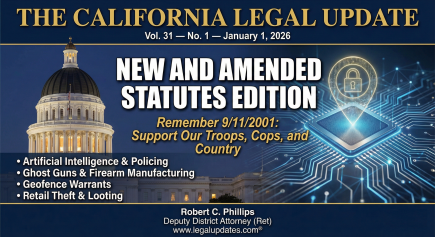

- Ref # CAE00012
- December 06, 2021
Community Caretaking, Probable Cause, and Marijuana Vehicle Searches:
Impounding Vehicles, the Community Caretaking Doctrine, and Probable Cause Marijuana Vehicle Searches: In an unpublished decision (Blakes v. Superior Court (Nov. 24, 2021) 2021 Cal.App. Unpub. LEXIS 7403), California’s Third District Court of Appeal discussed two legal theories for searching vehicles. First, the Court ruled, once again, that unless the elements of the “Community Caretaking Doctrine” are met, you cannot impound a person’s vehicle and expect a pre-impound inventory search of that vehicle to be upheld. In Blakes, gang detectives observed defendant driving a vehicle with illegally tinted windows. Upon initiating a traffic stop, defendant lawfully parked his car in a parking space in a public parking lot. Defendant was found to be unlicensed (his driver’s license having been suspended) so the officers decided to impound his car and do an inventory search of the car. However, “(t)here was no evidence petitioner’s car blocked traffic or was at risk of theft or vandalism.” Therefore, despite the officers’ agency having a policy allowing officers, at their discretion, to impound vehicles driven by unlicensed drivers, this particular vehicle, under these particular circumstances, did not meet the “community caretaking” requirements. I get individual officers arguing with me about this ....








